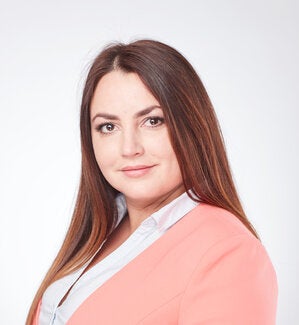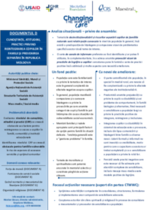Alexandra Safronova
Changing the Way We Care, Moldova
Monitoring Evaluation Accountability Learning Officer
"I believe that adequate monitoring systems help to ensure better programme quality, value for money and accountability to donors and beneficiaries."
Image

Background Information
- September 2020 - June 2022 - Master in Sociology
- September 2008 - June 2010 - Master in Germanic Linguistics
- September 2008 - June 2010 - Additional Professional Qualification - Business and Administration
- September 2005 - June 2008 - Licentiate in Humanities in the Field of Education
- July 2019 - present - CTWWC MEAL Officer
- February 2011 - June 2019 - Project manager in International Center of Training and Professional Development
Our Interview With Practitioner
How you develop your skills as a practitioner?
I decided to get a Master degree in Sociology to build my professional skills in monitoring and evaluation.
What are the most important things you’ve learned from this work?
Care reform if prioritized by governments and stakeholders is achievable and realistic even in challenging contexts.
What are the two most helpful resources or tools in your work?
- Government statistics
- Better Care Network
Why you do this work?
I believe that adequate monitoring systems help to ensure better programme quality, value for money and accountability to donors and beneficiaries.
What are the best approaches for supporting families?
- Parental education
- Economic strengthening
- Psycho-social support
Where They Operate
Key Areas of Work
Care Reform
,
Child Participation
,
Children with Disabilities
,
Community/Social Services
,
Deinstitutionalization
,
Family Reintegration/Reunification
,
Family Strengthening/Family Preservation
,
Family-Based Alternative Care
,
Prevention of Family Separation/Institutionalization
,
Research
,
Social Service Workforce Strengthening/Staff Training
and
Supporting Organizations to Transition to Family-Based Care
Languages Spoken
English
Français (French)
Pусский (Russian)
Practitioner Resources
Studiul a evaluat cunoștințele, atitudinile și practicile populației generale în ceea ce privește reintegrarea copiilor în familii, integrarea copiilor cu dizabilități în școala și comunitate și prevenirea separării copiilor care trăiesc în familii vulnerabile.

